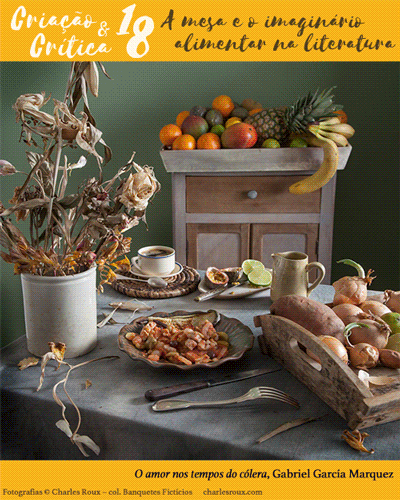A DELICACY OF POETRY: FOOD AND MYTHICAL AETIOLOGIES IN OVID’S FASTI
DOI:
https://doi.org/10.11606/issn.1984-1124.v0i18p5-19Keywords:
Ovid, Fasti, Food and memory, Meta-poetryAbstract
Focusing on the relationship between food and literature in Classical Antiquity, this paper deals with some dishes – such as libum (sacrificial cake made of flour, cheese and honey), animal meat and horse-beans – offered to the gods in festivities described in Ovid’s Fasti, and explores their status in these rites and their literary status in Ovid’s text. In this calendar poem, the dates of importance in Roman culture are reconstructed and recreated from a perspective that inserts the myth in history, through narration of etiological accounts, which expose the causes of Roman celebrations and their food. Thus, we first show that the poem, through explanations concerning the food used in rites, contributes to the construction of a memory of the Roman cultural tradition. Second, we investigate how these food’s etiologies introduce reflections on poetic making, in order to turn food into ingredients for self-reflexive and meta-poetic comments.Downloads
References
BARCHIESI, A. The poet and the prince: Ovid and Augustan discourse. Trans. Regents of the University of California. Berkeley/Los Angeles/London: University of California Press, 1997.
CATO; VARRO. On Agriculture. Translated by W. D. Hooper, Harrison Boyd Ash. Loeb Classical Library 283. Cambridge: Harvard University Press, 1934.
CITRONI, M. et al. Literatura de Roma Antiga. Lisboa: Calouste Gulbenkian, 2006.
DEGRASSI, A. Inscriptiones Italiae 13.2: Fasti anni numani et iuliani. Roma: Istituto poligrafico dello Stato, 1963.
ERNOUT, A.; MEILLET, A. Dictionnaire étymologique de la langue latine: histoire des mots. Paris: Klincksieck, 1951.
FITTON BROWN, A. D. “The unreality of Ovid’s Tomitan exile”. Liverpool Classical Monthly, Liverpool, v. 10, n. 2, p. 18-22, 1985.
GOUVÊA JR., M. M. “Fastos de Ovídio: uma introdução”. In: OVÍDIO. Fastos. Trad. M. M. Gouvêa Júnior. Belo Horizonte: Autêntica, 2015, p. 11-29.
HERBERT-BROWN, G. “Fasti: the poet, the prince and the plebs”. In: KNOX, P. (ed.). A Companion to Ovid. Oxford: Blackwell, 2009, p. 120-138.
HOLZBERG, N. Ovid: The poet and his work. Trans. G. M. Goshgarian. Ithaca/London: Cornell University Press, 2002.
HOMERO. Ilíada. Trad. C. A. Nunes. São Paulo: Ediouro, 2001.
HORACE. Odes and Epodes. Edited and translated by N. Rudd. Loeb Classical Library 33. Cambridge: Harvard University Press, 2004.
HORACE. Satires. Epistles. The Art of Poetry. Translated by H. Rushton Fairclough. Loeb Classical Library 194. Cambridge: Harvard University Press, 1926.
LUCRÈCE. De la nature. Tome I. Livres I-III. Texte établi et traduit par A. Ernout. Paris: Les Belles Lettres, 1955.
MACIEL, B. F. S. O poeta ensina a ousar: ironia e didatismo nas “Epístolas” de Horácio. 2017. 362 f. Dissertação de Mestrado – Programa de Pós-Graduação em Estudos Literários da Faculdade de Letras, UFMG, Belo Horizonte, 2017.
MACROBIUS. Saturnalia, Volume I: Books 1-2. Edited and translated by Robert A. Kaster. Loeb Classical Library 510. Cambridge: Harvard University Press, 2011.
MILLER, J. F. “The Fasti: style, structure, and time”. In: BOYD, B. W. (ed). Brill’s Companion to Ovid. Leiden/Boston/Köln: Brill, 2002, p. 167-196.
OVÍDIO. Fastos. Trad. M. M. Gouvêa Júnior. Belo Horizonte: Autêntica, 2015.
OVIDE. Les Fastes. Tome I. Livres I-III. Texte établi, traduit et commenté par R. Schilling. Paris: Les Belles Lettres, 2003.
OVIDE. Les Fastes. Tome II. Livres IV-VI. Texte établi, traduit et commenté par R. Schilling. Paris: Les Belles Lettres, 1993.
OVIDE. Tristes. Texte établi et traduit par J. André. Paris: Les Belles Lettres, 2008.
PINDAR. Olympian Odes. Pythian Odes. Edited and translated by William H. Race. Loeb Classical Library 56. Cambridge: Harvard University Press, 1997.
PLATO. Statesman. Philebus. Ion. Translated by H. N. Fowler, W. R. M. Lamb. Loeb Classical Library 164. Cambridge: Harvard University Press, 1925.
SCHEID, J. “Myth, cult and reality in Ovid’s Fasti”. The Cambridge Classical Journal, Cambridge, v. 38, p. 118-131, 2013.
TIBULLE. Élégies. Texte établi et traduit par M. Ponchont. Paris: Les Belles Lettres, 1955.
TREVIZAM, M. Linguagem e Interpretação na Literatura Agrária Latina. 2006. 526 f. Tese de Doutorado – Instituto de Estudos da Linguagem, Unicamp, Campinas, 2006.
VARRÃO. Das coisas do campo. Introdução, tradução e notas de M. Trevizam. Campinas: Editora Unicamp, 2012.
Downloads
Published
Issue
Section
License
Authors who publish with this journal agree to the following terms:
- Authors retain copyright and grant the journal right of first publication with the work simultaneously licensed under a Creative Commons Attribution License that allows others to share the work with an acknowledgment of the work's authorship and initial publication in this journal.
- Authors can enter into separate, additional contractual arrangements for the non-exclusive distribution of the journal's published version of the work (e.g., post it to an institutional repository or publish it in a book), with an acknowledgment of its initial publication in this journal.
- Authors are permitted and encouraged to post their work online (e.g., in institutional repositories or on their website) before and during the submission process, as it can lead to productive exchanges, as well as earlier and greater citation of published work (See The Effect of Open Access).



